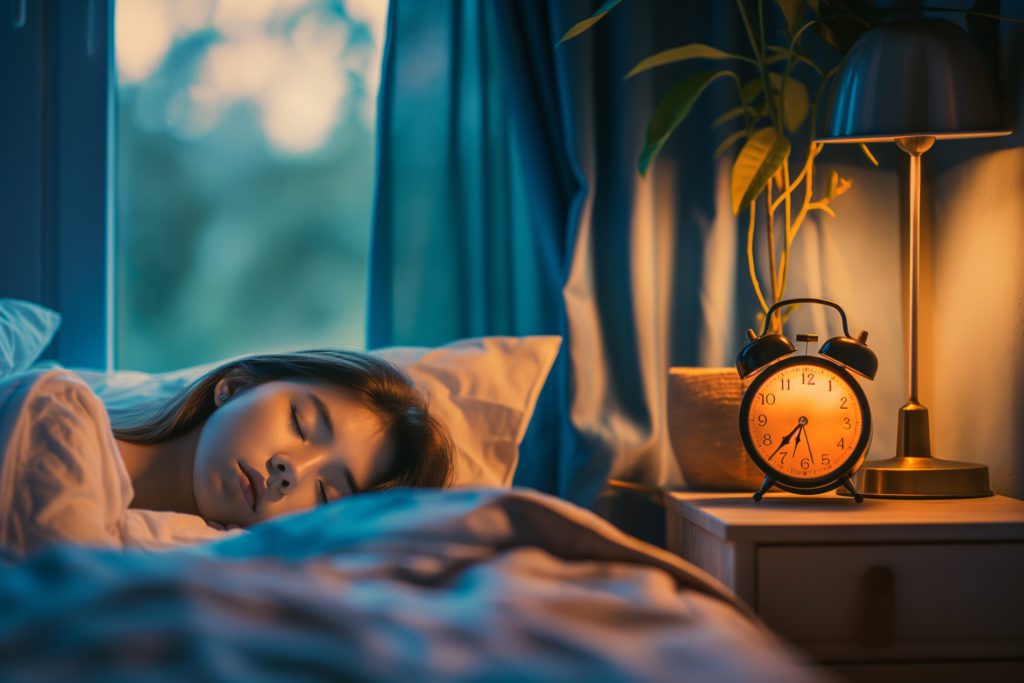
How to Recover from an All-Nighter?
How to recover from an all-nighter? Learn everything you need to know in this article. Our tips will help you regain your energy and get back on track.

We've all been there—burning the midnight oil to meet a deadline, cramming for an exam, or maybe binge-watching the latest season of your favorite show. Pulling an all-nighter might seem like a rite of passage, but the aftermath can be brutal. From groggy mornings to mid-day crashes, recovering from an all-nighter is no easy feat. But don't worry. We're here to help you bounce back with some tried-and-true tips.
In this article, we'll discuss how to recover from an all-nighter effectively. Whether you're a student, a professional, or just someone who got caught up in a Netflix whirl, these tips will help you regain your energy and get back on track. So, grab a cup of coffee (but not too much!), and let's get started.
Effects of an All-Nighter
Let's talk about what happens to your body when you skip a night of sleep. In the short term, you might experience fatigue, irritability, and brain fog. Your cognitive functions take a hit, making it harder to concentrate, remember things, and even make decisions. You might find yourself putting the cereal in the fridge and the milk in the pantry!
But the effects of an all-nighter don't stop there. Long-term sleep deprivation can lead to more serious health issues like weakened immune function, weight gain, and an increased risk of chronic conditions such as heart disease and diabetes. Plus, it wreaks havoc on your sleep cycle, making it even harder to get a good night's rest in the future.
So, now that we've covered the not-so-fun part, let's move on to the good stuff: how to recover from an all-nighter and get your groove back.
Immediate Steps to Take After an All-Nighter
You've survived the all-nighter, and now it's time to start the recovery process. First up is hydration. Water is your best friend when it comes to bouncing back from a sleepless night. Dehydration can make you feel even more tired, so drink up!
Next, let's talk about food. Your body needs fuel to function, and after an all-nighter, it's craving nutrients. Opt for a balanced meal with plenty of protein, healthy fats, and complex carbs. Think eggs and avocado on whole-grain toast or a hearty salad with lean protein. Avoid sugary snacks and heavy meals that can lead to an energy crash.
Light exercise can also work wonders. We're not talking about running a marathon here—a short walk or some gentle stretching can boost your circulation and help shake off that groggy feeling. Plus, getting some fresh air and sunlight can improve your mood.
And finally, take it easy on the caffeine. While a cup of coffee can help perk you up, too much can leave you feeling jittery and anxious.
Strategies for a Better Recovery
Now that you've taken some immediate steps, let's look at some strategies for a thorough recovery.
Good Sleep Hygiene
Good sleep hygiene is crucial. Start by creating a sleep-friendly environment. Make your bedroom as dark and quiet as possible, and set the temperature to something cool and comfortable. Your bed should be comfy, so invest in a comfy mattress and pillows.
Napping
Speaking of sleep, let's talk about napping. A well-timed nap can be a game-changer. Aim for a power nap of 20-30 minutes to avoid grogginess. This short burst of sleep can help improve your alertness and mood without interfering with your nighttime sleep. If you have more time, a 90-minute nap can allow you to complete a full sleep cycle, leaving you feeling refreshed.
Consistent Sleep Schedules
Consistency is key when it comes to sleep schedules. Try to go to bed and wake up at the same time every day, even on weekends. This helps regulate your body's internal clock and can make falling asleep easier.
Avoid Screen-time
Another important tip is to avoid screens before bed. The blue light emitted by phones, tablets, and computers can interfere with your ability to fall asleep. Instead, try reading a book or listening to calming music to wind down.
Long-term Recovery Tips
Take Small Steps
Recovery from an all-nighter isn't just about what you do the next day. Long-term habits play a significant role in how quickly you bounce back. Gradually adjust your sleep schedule if it's been thrown off. Go to bed 15-30 minutes earlier each night until you're back on track.
Avoid Caffeine and Alcohol
Cut back on caffeine and alcohol, especially in the hours leading up to bedtime. Both can disrupt your sleep patterns and make it harder to recover. Instead, focus on staying hydrated and eating a balanced diet rich in fruits, vegetables, lean proteins, and whole grains.
Exercise
Regular exercise is also beneficial for maintaining healthy sleep patterns. Aim for at least 30 minutes of moderate exercise most days of the week, but avoid vigorous activity close to bedtime.
Review Your Sleep Schedule
If you find yourself frequently pulling all-nighters, it might be worth examining your schedule and workload. Are there ways to manage your time more effectively or delegate tasks? Consistently getting enough sleep is crucial for your overall health and well-being.
Use Technology to Your Advantage
And remember, if you're struggling to get your sleep back on track, Pillow is here to help. It offers detailed insights into your sleep patterns and provides recommendations to improve your sleep quality over time.
When to Seek Professional Help
Sometimes, despite your best efforts, you might find it difficult to recover from sleep deprivation. If you're experiencing chronic sleep issues or mood changes, or if your performance at work or school is suffering, it might be time to seek professional help. A healthcare provider can help identify any underlying issues and recommend appropriate treatments or interventions.

Written by
Dr Aqsa
As a Medical Doctor, Dr Aqsa, uses her knowledge to craft complex medical information that is understandable to the general public. For years, she has tried to improve health literacy and empower readers with valuable health knowledge through her articles, blog posts, and educational materials.
Download Pillow
Get help
Press & News
Legal
Connect
X (Twitter)
Company
Copyright © Neybox Digital Ltd.



